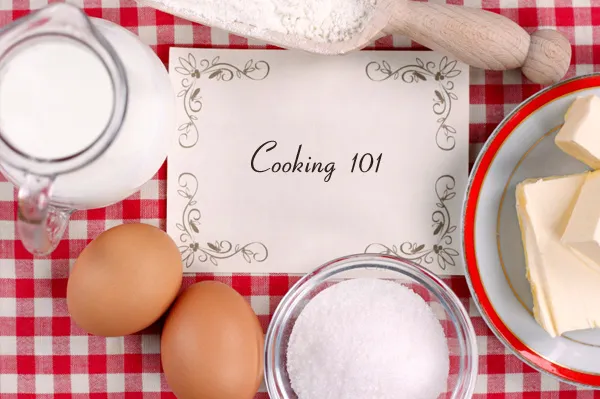
Picture this. You come home after a long day, your stomach is growling, and all you want is something warm, comforting, and satisfying. You open the fridge and stare blankly, wondering how on earth you will put together a meal that is not just edible but enjoyable. So many of us juggle work, family, and endless to do lists, leaving little room for cooking from scratch. Yet deep down, there is a part of us that craves the joy of preparing a dish with our own hands, the satisfaction of tasting food we created, and the confidence that comes from knowing we can handle ourselves in the kitchen. This is exactly where Cooking 101 comes in.
It is not about gourmet recipes that take hours, nor about fancy tools you may not even own. It is about the small, practical lessons that make everyday cooking faster, easier, and a lot less intimidating. Whether you are a student learning to cook for the first time, a professional with little time to spare, or someone who has always leaned on takeout menus, this guide is designed with you in mind. Cooking –101 is about learning quick skills that save time, prevent stress, and bring a little spark of joy back into mealtime. The good news is you do not need to be a trained chef. You just need a willingness to try, a few simple ingredients, and the right mindset. Let’s dive in.
Lesson One: Cooking 101: Stock Your Basics
Busy beginners often make the mistake of overthinking their pantry. In truth, Cooking – 101 starts with a few versatile essentials. Keep items like rice, pasta, canned beans, eggs, and fresh vegetables on hand. These staples can be combined in countless ways, giving you options without overwhelming your mind with too many choices. Think of them as building blocks that form the foundation of your meals.
Lesson Two: Master Simple Knife Skills
Good cooking begins with preparation. Chopping an onion or dicing garlic might seem small, but once you practice these basic moves, your time in the kitchen becomes smoother and faster. Cooking –101 teaches that efficiency is not about speed alone but about confidence with simple tools.
Lesson Three: Learn Quick Cooking Methods
You do not need complicated techniques to create tasty meals. Stir frying, sautéing, and roasting are three methods that save time while bringing out rich flavors. Toss vegetables in olive oil, roast them in the oven, and you suddenly have a side dish that tastes like it took effort when in reality it needed only minutes. With Cooking 101, these small skills become your secret weapons.
Lesson Four: Flavor Without the Fuss
Salt, pepper, garlic, and herbs are the magic touches that elevate even the simplest dish. Busy beginners often skip seasoning, yet seasoning is what makes food come alive. Cooking 101 emphasizes that you do not need dozens of spices, only a few reliable ones that you learn to balance. A sprinkle here, a dash there, and your dish will taste far more professional than you expect.
Lesson Five: Keep it One Pot
When time is short, nothing feels better than cooking everything in one pot or pan. Think hearty soups, quick stir fries, or pasta dishes where the sauce and noodles cook together. These meals save on cleanup and give you satisfying results with minimal effort. Cooking 101 encourages one pot cooking because it reduces stress and maximizes flavor in record time.
Lesson Six: Embrace Leftovers
Many beginners underestimate the power of leftovers. Cooking once and eating twice is not only practical, it is smart. Cooking reminds us that efficiency in the kitchen is not laziness, it is creativity. Waiting in your refrigerator, leftovers are a gift of more time.
Lesson Seven: Cooking 101: Practice Patience With Yourself
You will make mistakes, but you will learn from them all. The aim of cooking is to appreciate the little triumphs along the way rather than to become an expert overnight. The first time your pasta is perfectly al dente, or when you season a dish just right, you will feel a spark of pride that makes the effort worthwhile.
To sum up,cooking 101 for busy beginners is not about complicated recipes or hours in the kitchen. It is about learning small, practical lessons that add up to confidence, speed, and joy. Stocking your pantry, practicing knife skills, mastering quick methods, seasoning smartly, using one pot meals, and embracing leftovers all bring simplicity to your daily cooking routine. Most importantly, it is about giving yourself the grace to learn, grow, and even laugh at your mistakes along the way. Cooking should not feel like a chore. It should feel like an invitation to nourish yourself and those you care about. Once you take these first steps, you will discover that even with a busy schedule, you can create meals that satisfy your hunger and feed your spirit. That is the heart of Cooking.
